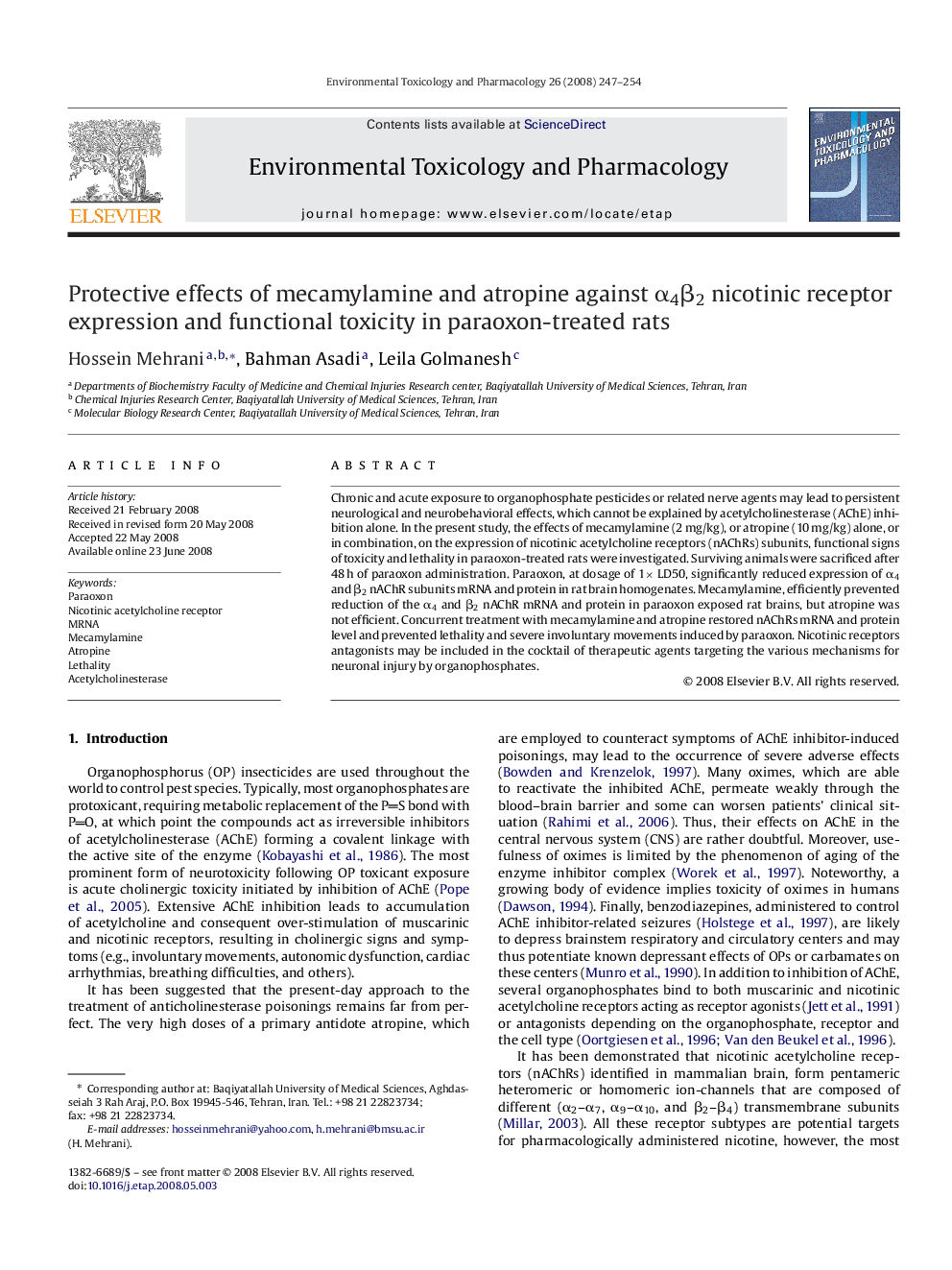| کد مقاله | کد نشریه | سال انتشار | مقاله انگلیسی | نسخه تمام متن |
|---|---|---|---|---|
| 2584093 | 1130713 | 2008 | 8 صفحه PDF | دانلود رایگان |

Chronic and acute exposure to organophosphate pesticides or related nerve agents may lead to persistent neurological and neurobehavioral effects, which cannot be explained by acetylcholinesterase (AChE) inhibition alone. In the present study, the effects of mecamylamine (2 mg/kg), or atropine (10 mg/kg) alone, or in combination, on the expression of nicotinic acetylcholine receptors (nAChRs) subunits, functional signs of toxicity and lethality in paraoxon-treated rats were investigated. Surviving animals were sacrificed after 48 h of paraoxon administration. Paraoxon, at dosage of 1× LD50, significantly reduced expression of α4 and β2 nAChR subunits mRNA and protein in rat brain homogenates. Mecamylamine, efficiently prevented reduction of the α4 and β2 nAChR mRNA and protein in paraoxon exposed rat brains, but atropine was not efficient. Concurrent treatment with mecamylamine and atropine restored nAChRs mRNA and protein level and prevented lethality and severe involuntary movements induced by paraoxon. Nicotinic receptors antagonists may be included in the cocktail of therapeutic agents targeting the various mechanisms for neuronal injury by organophosphates.
Journal: Environmental Toxicology and Pharmacology - Volume 26, Issue 2, September 2008, Pages 247–254